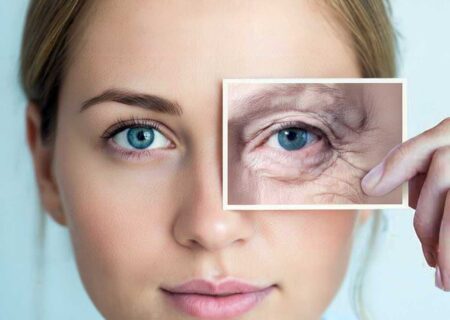If you’ve ever stepped out of the shower feeling like your skin is two sizes too small, you’re not imagining things. That dry, itchy feeling isn’t just uncomfortable, it’s your body’s way of saying your skin barrier needs a little extra care. The good news? You don’t need an expensive new skincare lineup or a complicated 10-step routine to fix it. With a few small tweaks, you can restore hydration and comfort quickly, and the results will speak for themselves.
The Hidden Reason Your Skin Feels Dry and Tight
Most people assume dry skin means they’re not moisturizing enough, but the real culprit often lies in what happens before you even apply lotion. Long, hot showers and harsh cleansers can strip away the natural oils that keep your skin soft and supple. Once those protective lipids are gone, moisture escapes easily, leaving your skin feeling rough or irritated.
Your skin barrier, the outermost layer responsible for sealing in hydration, functions best when it’s protected. When you use the wrong cleanser, that barrier becomes compromised, and even your best moisturizer won’t fully sink in or do its job.
A simple change, like switching to the best body shower oil, can make a noticeable difference. Unlike traditional soaps or foaming washes, shower oils cleanse gently while replenishing lost moisture. They create a thin, nourishing layer that helps your skin hold onto hydration long after you’ve dried off.
Why Over-Cleansing Makes It Worse
If your skin feels itchy or flaky no matter how often you moisturize, you might be over-cleansing. Showering multiple times a day or using products that lather heavily can cause more harm than good. While it’s important to stay clean, your skin doesn’t need to feel “squeaky” to be healthy.
That squeaky-clean feeling is actually a sign that you’ve stripped your skin of its protective oils. When that happens, your body tries to compensate by producing more oil, which can lead to imbalance, irritation, or even breakouts on some skin types. Choosing a hydrating cleanser helps maintain your skin’s natural balance without leaving it greasy or sticky.
How to Rehydrate Without Starting From Scratch
You don’t need to throw out your current products. Small adjustments can help your existing routine work far better:
1. Take Shorter, Cooler Showers
Hot water feels great but it’s a major culprit behind dryness. Opt for lukewarm water and limit showers to under ten minutes. This prevents your skin from losing too much moisture while you cleanse.
2. Pat — Don’t Rub — Your Skin Dry
Rubbing with a towel can cause micro-irritation and worsen dryness. Instead, gently pat your skin dry, leaving a thin layer of moisture behind. That dampness helps your lotion or oil absorb more effectively.
3. Moisturize Immediately After Showering
Timing matters. Apply your body cream or lotion within three minutes of stepping out of the shower. When your skin is slightly damp, it locks in hydration much better than if you wait until it’s fully dry.
4. Layer Your Hydration
If your skin is very dry, apply a lightweight oil before your regular moisturizer. The oil forms a barrier that helps seal in moisture and keeps your skin soft throughout the day.
Ingredients That Make a Difference
When it comes to calming itchy or flaky skin, ingredients matter as much as technique. Look for:
- Ceramides and fatty acids to strengthen the skin barrier
- Glycerin to draw in and hold moisture
- Niacinamide to calm irritation and support barrier repair
- Natural oils like sunflower, jojoba, or shea to nourish without clogging pores
Avoid products with high alcohol content, artificial fragrance, or sulphates, as these can further dehydrate or irritate sensitive skin.
Why Consistency Is Key
Dry, itchy skin doesn’t repair itself overnight. Your barrier needs time to rebuild, and that happens gradually with consistent care. Stick to your new habits for at least a week or two before deciding whether they’re working.
The payoff is worth it, once your skin barrier recovers, you’ll find that everything else in your routine performs better. Your moisturiser will finally sink in, your skin will stay hydrated for longer, and that constant itchiness will fade away.
When to Seek Professional Help
If you’ve made these adjustments and your skin is still persistently dry, flaky, or inflamed, it could be a sign of an underlying condition such as eczema or contact dermatitis. In those cases, a dermatologist can help you identify triggers and recommend barrier-repairing treatments that go beyond over-the-counter options.
Small Changes, Big Results
Fixing dry, itchy skin doesn’t have to mean reinventing your entire skincare routine. By making a few smart swaps, like using gentler cleansers, adjusting water temperature, and applying moisturiser at the right time, you can transform how your skin feels every day.
Your skin’s comfort is built on balance, not complexity. Start simple, stay consistent, and let your natural barrier do what it’s designed to do: keep you hydrated, protected, and glowing.






